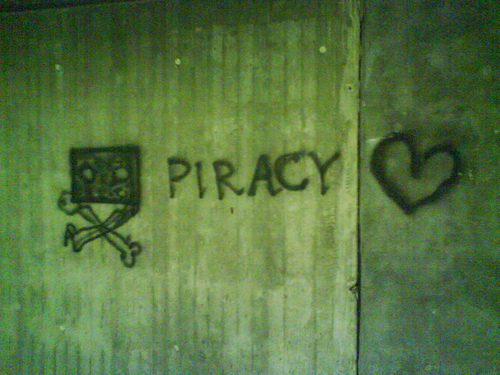
It seems like ACTA negotiators have finally gone one step in the direction of transparency. After a week of negotiations in Wellington (NZ), they announced on Friday that the draft treaty would be made public next Wednesday. Or maybe they just learned their lesson after repeated leaks.
The Anti-Counterfeiting Trade Agreement (ACTA) has been in the making for over two years behind closed doors. The new treaty aims to improve “global standards for the enforcement of [Intellectual Property Law], to more effectively combat trade in counterfeit and pirated goods,” according to the EU Commission.
As you might expect, the negotiating parties are a western club (US, Canada, Japan, Australia, New Zealand, the EU and Switzerland) with a few ‘like-minded’ friends (Singapore, South Korea, Mexico, Morocco).
ACTA has faced a storm of criticism from internet users. Here is a little summary of the main issues at stake:
- There are fears that ACTA will significantly restrict internet liberties, for example by shifting the burden of copyright enforcement onto service providers. Some leaked provisions even point toward a French-like clampdown.
- The music and entertainment industry are clearly strong lobbying forces behind ACTA. But according to NGO InternetNZ, there is no evidence that stronger copyright protection is needed in the digital realm. Even the US Government Accountability Office can’t find conclusive data to prove that piracy is having a substantial negative economic impact.
- ACTA provisions that go beyond current national law may require modifications in the legislation of some countries. Will some governments misuse a so-called international trade agreement to introduce unpopular laws through the back door?
- The negotiations have very much lacked transparency so far. Even the title of the treaty is misleading: ACTA doesn’t have much to do with trade as much as copyright protection, and as Twitter user Br3nda puts it: “if acta were serious about stopping counterfeiting, they’d include countries where most counterfeit goods originate, china, taiwan, russia.” Negotiators argue that secrecy is needed in order to avoid pressure from other countries. Civil society activists have been very vocal in requiring information and that their interests be taken into account.
- Finally, the form the negotiations have taken has been controversial, too: the instigators have avoided the WTO or World Intellectual Property Organization (WIPO) to create their own negotiating forum. Some EU parliamentarians are rising up against this “attempt to circumvent global norms on intellectual property enforcement and related public interest flexibility.”
Let’s see if the draft made public on Wednesday confirms those fears. The next ACTA negotiating round has already been announced for June in Switzerland.
If you want to read more on intellectual property, check out our latest Special Report “IPR: Help or Hindrance?“.


One reply on “ACTA: Secret Anti-Piracy Negotiations Unveiled”
A draft of the treaty has been made public as announced. There it is: http://trade.ec.europa.eu/doclib/docs/2010/april/tradoc_146029.pdf